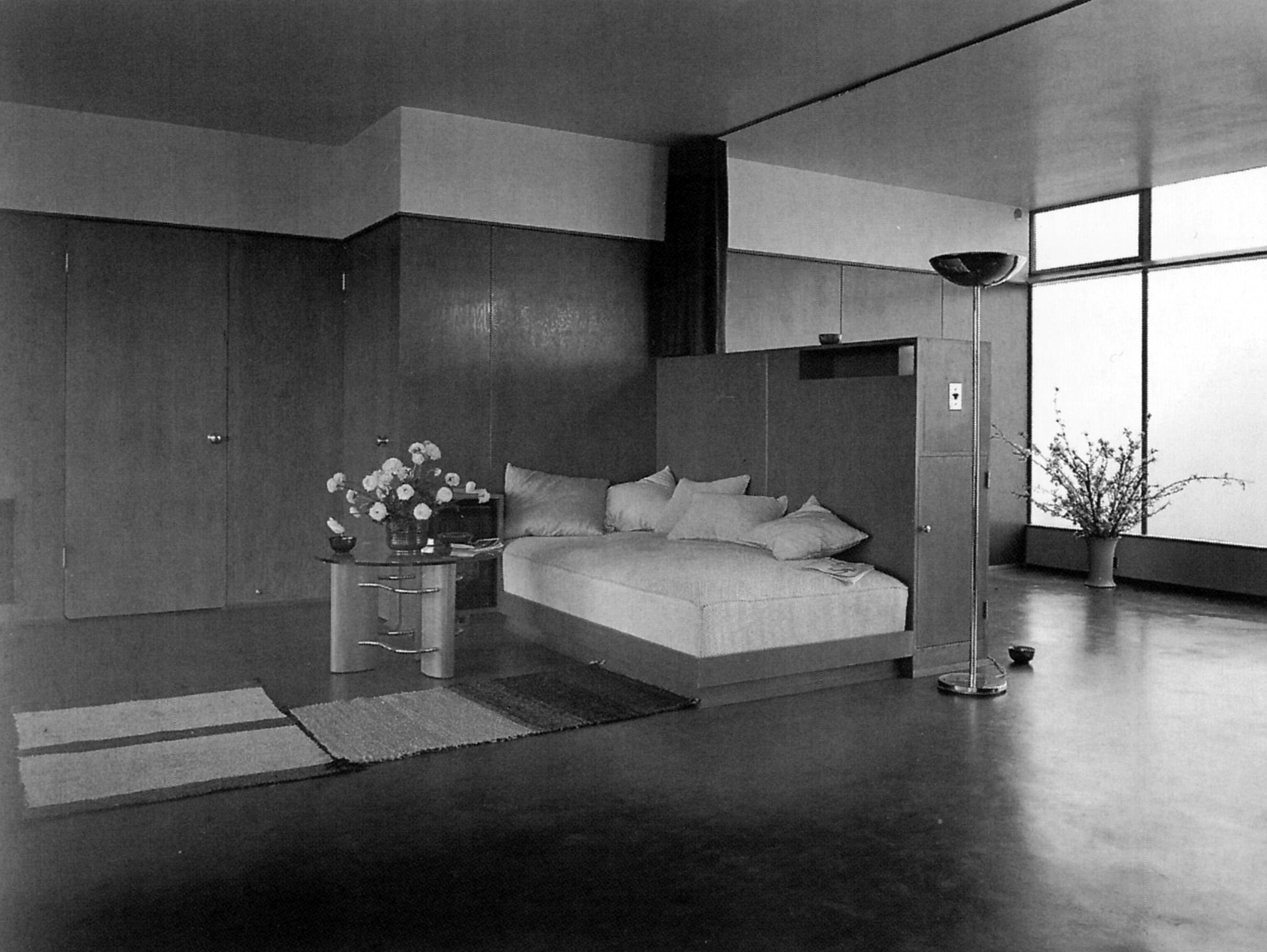An approach to the architecture of Richard Neutra from his empathy with the user in the project process
DOI:
https://doi.org/10.18861/ania.2022.12.1.3206Keywords:
Richard Neutra, biorrealism, ethnography, empathy, user, user-centred architecture, design thinking process, humanism, Case Study Houses, EamesAbstract
The article presents an approach to the work of the architect Richard Neutra analyzing and valuing empathy with the user, as well as the actions carried out during the design process aimed at knowing and satisfying the user’s needs. Although it is common to consciously use empathy techniques in the field of design, it has been done in a more subconscious way in architecture. The exploration of the user has been implicitly integrated and, therefore, diluted in a broader initial investigation, linked to guaranteeing the functionality of the program. The work of Richard Neutra is presented as adequate to carry out this study, due to the constant focus that the architect places on seeking the wellbeing of people through the inhabited spaces that he designs. The research is structured in three different parts: attention to the physiological and psychological dimensions of the person; analysis of the relationship established between the person and nature through his architecture; and presentation of specific examples of techniques applied by the architect to better know the user, their family structure and their needs. The strong orientation towards the user in Neutra’s architecture is confirmed through the cases studied and with the support of specific feedback from some of his clients. He seeks to guarantee their physical and emotional wellbeing through the configuration of spaces, as well as the expansion of being through connection with nature. An architect ahead of his time, who builds a strong empathic bond with his users and applies a series of empathy techniques that will have a long subsequent development within what is now known as Design Thinking.
Downloads
References
BOESIGER, W. (ed.). (1950). Richard Neutra. Buildings and Projects. Zurich.
DREXLER, A. y HINES, T.S. (1984). The Architecture of Richard Neutra: From International Style to California Modern. New York: The Museum of Modern Art.
EAMES, C., EAMES, R.; OSTROFF, D. (ed.). (2015). An Eames Anthology. New Haven: Yale University Press.
FERNÁNDEZ VILLALOBOS, N. (2019). "House of cards: el "continente" Eames en una baraja de cartas" en Proyecto, Progreso, Arquitectura, (20), 86–105.
https://doi.org/10.12795/ppa.2019.i20.05
HINES, T.S. (2005). Richard Neutra and the Search for Modern Architecture. New York: Rizzoli. (1ªed: 1982).
LAMPRECHT, B. (2004). Richard Neutra. La conformación del entorno. Köln: Taschen.
LAMPRECHT, B. (2019). Richard Neutra. Complete Works. Köln: Taschen.
LAVIN, S. (1999). "Open the Box: Richard Neutra and the Psychology of the Domestic Environment" en Assemblage, (40), 6, pp. 6-25. doi:10.2307/3171369
NEUMANN, D. (ed.). (2001). Richard Neutra's Windshield House. Mass: Yale University Press and Harvard Design School.
NEUTRA, R. (1957). Planificar para sobrevivir. Mexico: Fondo de Cultura Económica.
NEUTRA, R. (1972). Vida y forma. Buenos Aires: Marymar (1ªed. 1962).
NEUTRA, R. (1973). Realismo biológico: un nuevo renacimiento humanístico en arquitectura. Buenos Aires: Nueva Visión.
OSTWALD, M.J., y DAWES, M.J. (2018). "Richard Neutra: Spatial Theory and Practice" en Mathematics and the Built Environment, 179–205. doi:10.1007/978-3-319-71647-3_6
SACK, M. (1994). Richard Neutra. Barcelona: Gustavo Gili.
SMITH, E.A.T. (2009). Case Study Houses. The Complete CSH Program (1945–1966). Köln: Taschen.
TRAVERS, D.F. (2014). Arts & Architecture 1945-49. Colonia: Taschen.
TRAVERS, D.F. (2016). Arts & Architecture. Archivo online.
Recuperado de: http://www.artsandarchitecture.com/index.html (09/08/2021)
VELA CASTILLO, J. (2003). Richard Neutra, un lugar para el orden: un estudio sobre la arquitectura natural. Sevilla: Universidad de Sevilla.

Published
How to Cite
Issue
Section
License
Copyright (c) 2021 Raquel Cabrero-Olmos

This work is licensed under a Creative Commons Attribution 4.0 International License.
The journal and its contents are licensed under the Creative Commons - Attribution 4.0 International License (CC BY 4.0). It is possible to copy, communicate and publicly distribute its content as long as the individual authors and the name of this publication are cited, as well as the publishing institution (Universidad ORT Uruguay).

